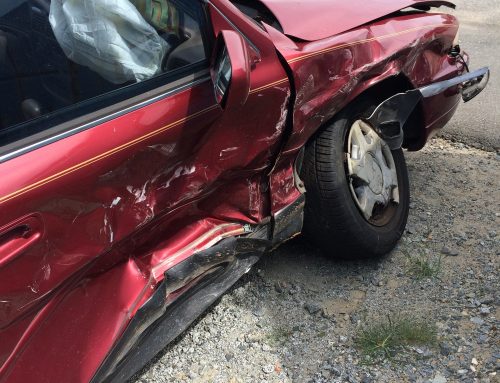If you recently experienced a car crash, especially one caused by someone else’s negligence, there can be a significant emotional impact. From PTSD to depression brought on by dealing with severe injuries, mental anguish can be a direct result of being involved in an accident. When you are seeking compensation after a car accident, emotional distress is typically considered as serious as property damage and medical expenses.
Unhealthy psychological reactions that occur after a car accident are not easy to predict or immediately recognize – and two people can experience the same accident with very different responses.
Common Symptoms of Adverse Emotional Impact
- Increased anger, irritability, or mood swings
- Obsessive and/or compulsive behaviors
- Excessive episodes of crying
- Denial of the reality of the situation
- Diminished interest in once-beloved activities
- Mental numbness and apathy
- Memory loss and forgetfulness
- Episodes of overwhelming sadness
- Withdrawal from social situations
- Choosing to be isolated more often
- Drug or alcohol addictions
- Sleep issues, nightmares, or insomnia
- Crisis of religious faith
The emotional aftermath of a car accident often informs the need for treatment – just as physical injuries can. In more severe situations, suicide is a potential end result; therefore, it is important to seek help for yourself or your loved one. Other conditions necessitating treatment may include:
Anxiety: The individual feels tension or worry that is not compatible with the situation; and may experience panic attacks, significant fear and social anxiety, agoraphobia, and separation anxiety.
- Depression: The individual cannot turn off negative thoughts and starts to isolate so as not to interact with others. Depression is generally linked to a combination of family health history and psychological distress from a painful experience.
- Post-traumatic stress disorder: PTSD results from experiencing or witnessing a traumatic event, such as a serious car accident. Individuals suffer from uncontrollable flashbacks and persistent thoughts, nightmares, and severe anxiety. PTSD poses a significant risk factor for suicide, but addiction, anxiety or depression are possible as well.
- Substance and drug abuse and addiction: The use of psychoactive drugs can result in physical dependence, elevated risk of injury, as well as social and emotional harm. These harmful substances may include alcohol, medication prescribed by a physician, or illegal psychoactive drugs.
- Memory loss: Accident victims often have short or long-term memory loss, even if there was no brain injury. This is because the mind can get overwhelmed with processing the trauma, in essence, “losing track” of details temporarily.
Treatment for Emotional Effects
If you are living with the psychological effects of an injury caused by someone else’s recklessness, you may feel helpless and unable to cope with everyday situations. However, you can achieve relief through medication, therapy, and support from loved ones.
You may also wish to pursue compensation for your damages through a personal injury lawsuit. Negative emotional trauma response can affect every facet of an individual’s life, including the ability to work, maintain relationships and stay independent. Fortunately, the Florida legal system recognizes that the emotional impact of physical injuries and events should be compensated.
A personal injury lawsuit is a legal claim that strives to prove liability for the psychological trauma resulting from a serious car accident. If you feel that you have a case for emotional damages because of an accident you experienced, call the personal injury attorneys at Probinsky & Cole. You should not have to live a compromised life because of someone else’s negligence – call us today.








